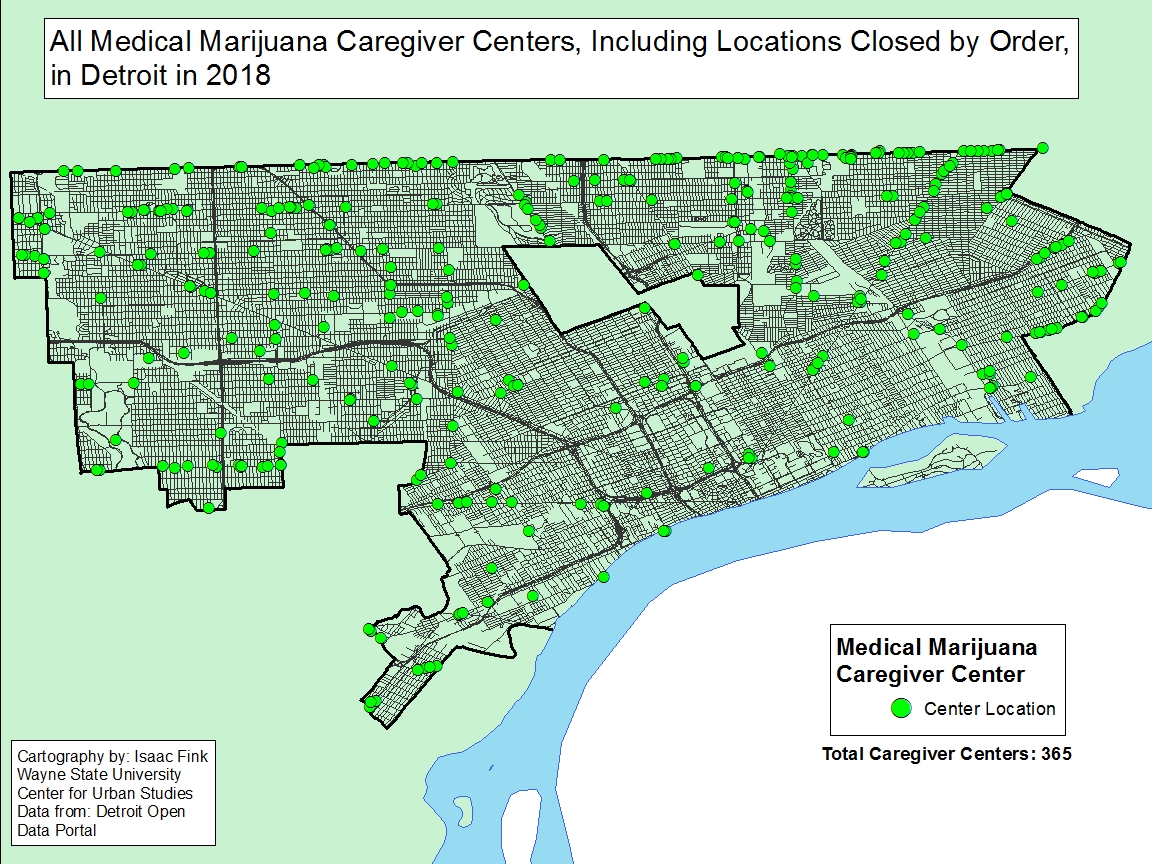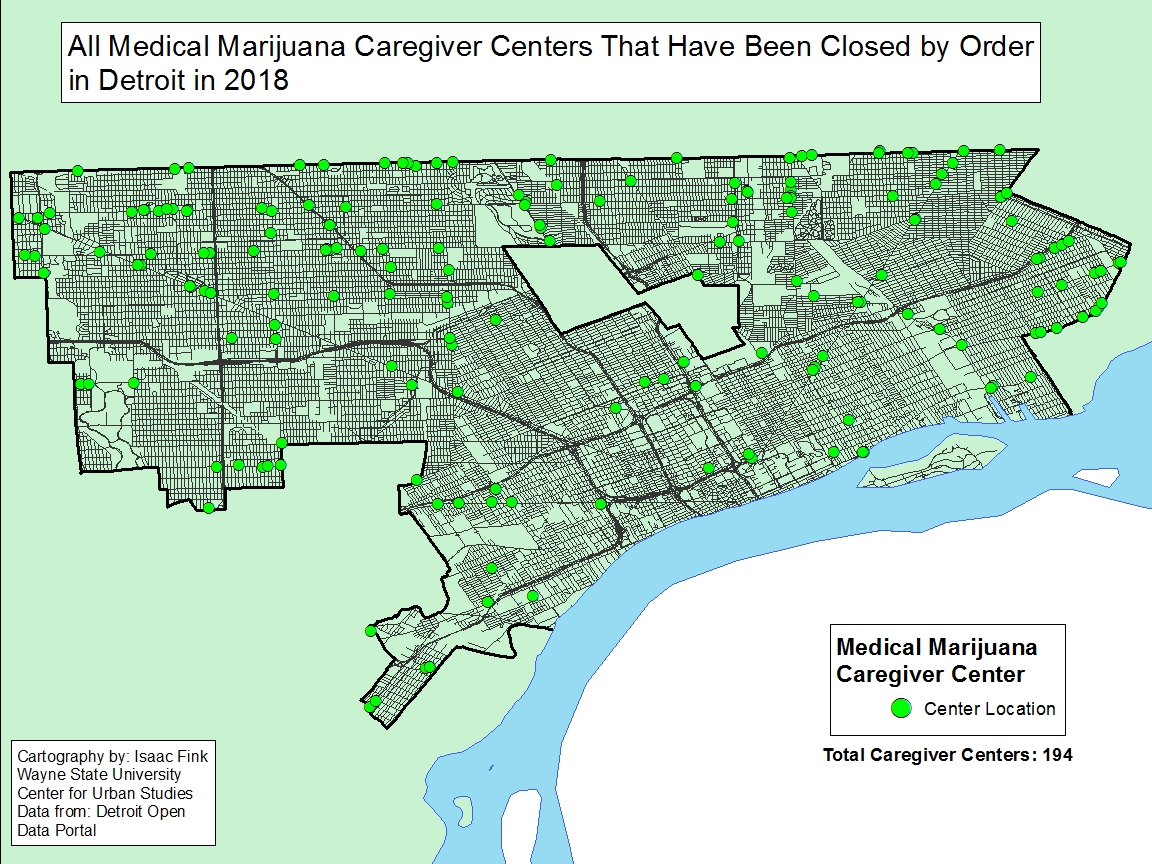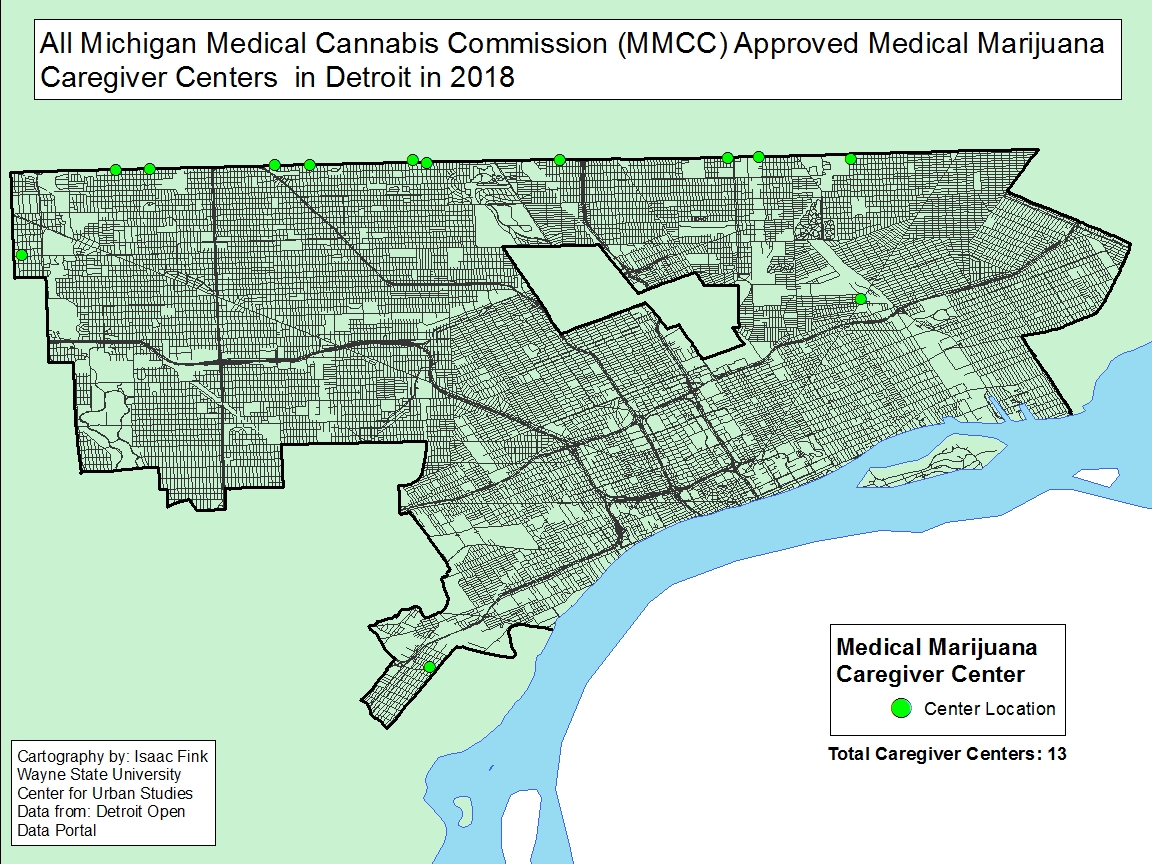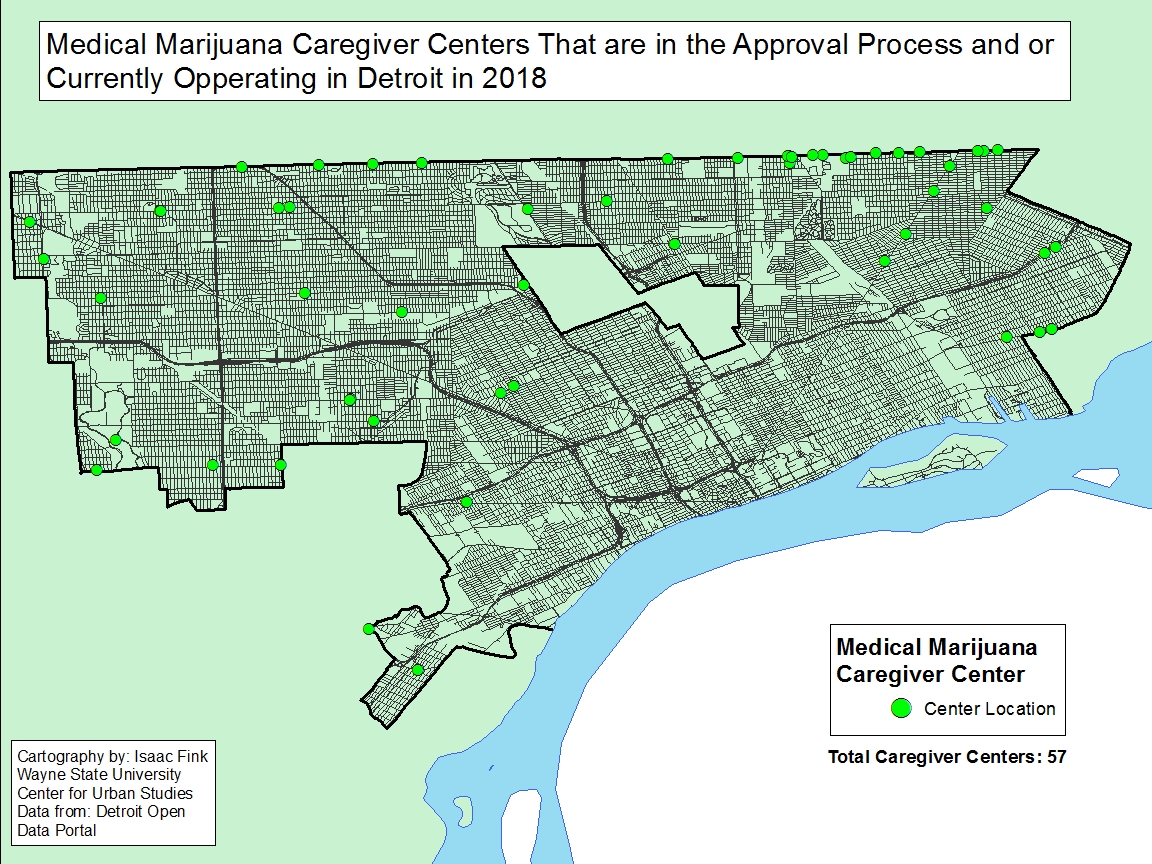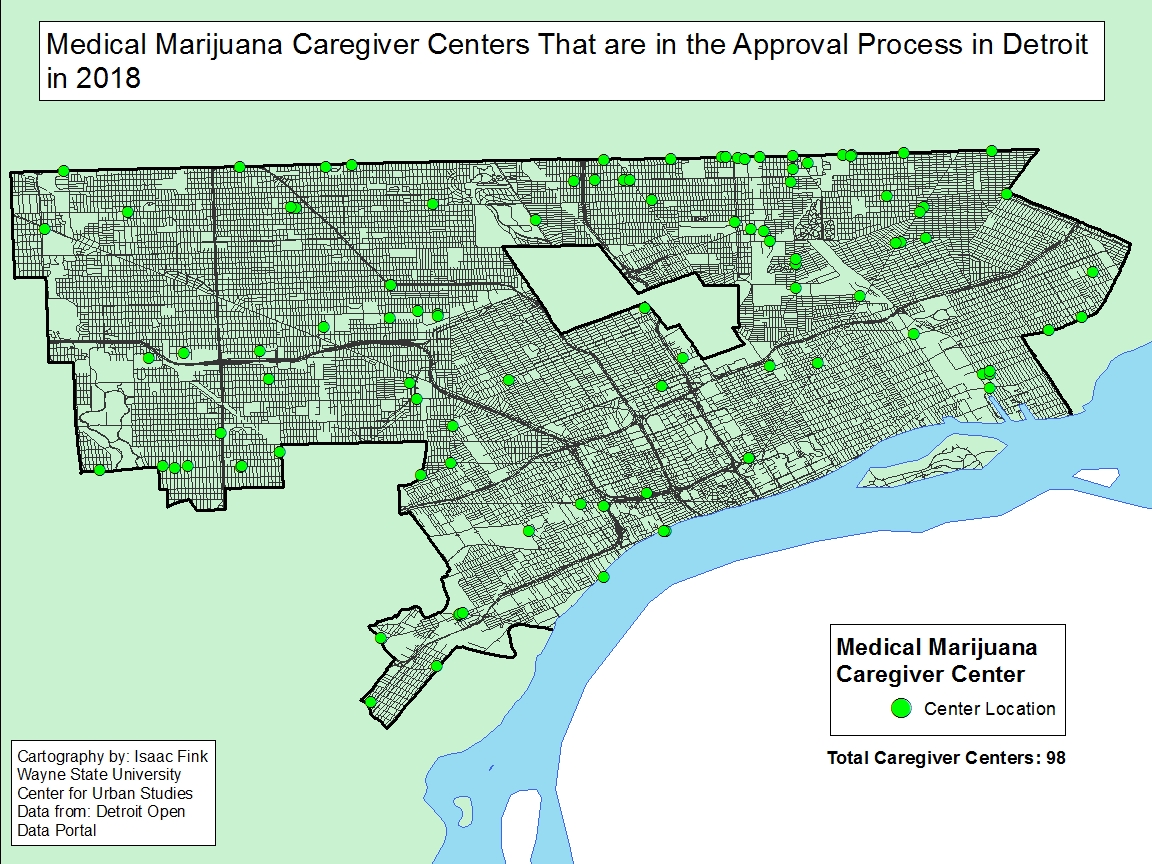More than 200 medical marijuana caregiver centers have closed throughout the State of Michigan in the last several weeks, the majority of those being located in Detroit. According to data provided by the City of Detroit, as of March 23, 194 medical marijuana caregiver centers have closed in the City in 2018. Of these, 159 of medical marijuana caregiver centers closed between March 15 and March 29; these centers closed following cease and desist letters sent by the Michigan Department of Licensing and Regulatory Affairs (LARA) due to the fact they didn’t apply for licensing through the state. Centers had been allowed to stay open through an emergency rule that was issued in December stating, if the business had approval from the municipality it was located in and applied for the required LARA license. According to multiple media sources, the letters sent by LARA to the 200 plus medical marijuana caregiver centers stated if the centers did not close they would be at risk of not being able to obtain future licensing and/or face consequences from law enforcement.
Currently in Detroit there is a moratorium on new medical marijuana caregiver facilities opening; it went into affect on Feb. 13 and will last for at least six months. Despite the moratorium and closings there are still medical marijuana caregiver centers in Detroit. The first map below shows where all the medical marijuana caregiver centers in Detroit (368) are or were located, including those that have been closed in 2018, and those that are still operating and/or seeking licensing (57 still operating and/or seeking approval and 98 simply seeking approval). While the centers are spread out throughout the City, there were certainly areas with higher concentrations of the centers. For example, right along the northern border of Detroit, 8 Mile Road, there were about 55 medical marijuana caregiver centers. Gratiot Avenue is also heavily lined with medical marijuana caregivers. While majority of centers, both open and closed, are located north of Detroit’s downtown, there are a handful in Detroit’s inner core.
The second map shows the 194 medical marijuana centers that have been closed in 2018. As stated, that is 194 out of 368 in the City (the 368 includes those that are operating, those that are seeking approval and those that are closed). The centers that have closed in the City are not concentrated in specific neighborhood.
There are 13 medical caregiver facilities in the City (shown in the map below) that are operating the closest to compliance as possible, within the expectations of local and state laws, because they have received zoning approval from the City of Detroit and have applied for the emergency licensing described above. According to two initiatives passed on Nov. 7, 2017 in Detroit the Zoning Board of Appeals does not have the authority to review dispensary applications and allows these businesses within 500 feet of several organizations, including religious institutions and other dispensaries. The City has since challenged these initiatives, further confusing the legal operation of medical marijuana caregiver facilities in the City, and the zoning regulations related to them.
In addition to Michigan Medical Cannabis Commission medical marijuana caregiver facilities and those that have closed, there are also the ones that are in the approval process and ones that are in the approval process and still operating. The first map below shows that there are 57 medical marijuana caregiver facilities and/or currently operating in the City of Detroit. While the City of Detroit doesn’t detail what “and/or still operating means,” it is likely related to the facilities that applied for emergency licensing to remain open during the time their new licensing through the state was being reviewed. In addition to the 57 facilities that are seeking licensing and/or still operating, there are an additional 98 medical marijuana caregiver facilities (second map below) seeking approval from the City and the State that are not operating.
In traversing through this issue for this post, it is evident there is still plenty of work to be done at the local and state level to eliminate confusion and allow medical marijuana caregiver facilities to operate legitimately. Like Detroit, other local governments are also trying to navigate through state and local regulations. For example, in Ann Arbor new zoning regulations were approved by the City Council in February. Zoning for four dispensaries in Ann Arbor was then approved, while decisions on two others were delayed. Local officials there too are still learning how to adjust.
